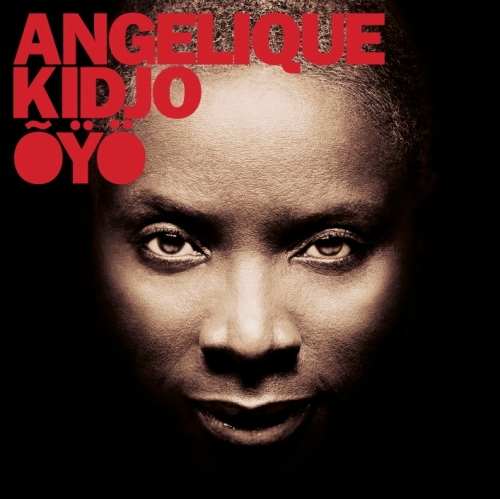What is most impressive about this album of audio nostalgia is how much Kidjo invests herself in each performance.She opens with a soulful vocal blast and guttural flourishes on Bellow’s “Zelie,” then lofts into a smart reworking of Santana’s “Samba Pa Ti” with velvety understatement on the chorus, and unrestrained wails on the chorus, also exquisitely cool brass work by Roy Hargrove.Her elegant read of Sidney Bichet’s decidedly old world “Petite Fleur” is invested with a remarkable depth of love for her late father, who adored this song and earns its dedication here. Kidjo makes savvy use of her guests, letting them shine but never steal the show.John Legend and Bono spice up a dense, chugging read of Curtis Mayfield’s “Move on Up.” And Kidjo and Dianne Reeves vibe persuasively on a slinky, African remake of Aretha Franklin’s “Baby, I Love You.”Kidjo further polishes her soul-diva cred with an incendiary, even orgasmic, read of Otis Redding’s “I’ve Got Dreams to Remember.”
Kidjo is remembering, but she’s also taking liberties, inserting voodoo percussion, balafon lines, and even plucked African-style melodies—kora? guitar? Doesn’t really matter—on a very credible cover of James Brown’s “Cold Sweat.”Kidjo intersperses universal party-music fare with more specifically African counterparts—like her highlife song “Kelele, or even her Afropop reworking of an old Bollywood song.She evokes a universe of pop culture movements in full-on, joyous collision in the Kidjo family living room in the ‘70s.In the process, this Afropop dynamo reveals so much about who she really is, and enriches our understanding of her remarkable catalogue of recordings.
For all the funk, soul and highlife here, the ballads deserve special mention.“Agbalagba” a song inspired not by music but a novel—Uwem Akpan’s “Say You’re One of Them”—has one of the most hauntingly beautiful melodies Kidjo has ever penned.Her version of “Lakutshona Llanga,” a lullaby she had hoped to record with Makeba but never got to, is similarly luminous, especially filled out with tasty guitar work from Loueke.Even when she ventures into potentially hackneyed torch song territory, covering the theme from the film Out of Africa, Kidjo manages to keep it real with a performance that bares the depth of her own feelings of longing and nostalgia for home when she was forced by a repressive political milieu to leave Benin in 1983.
-Banning Eyre










